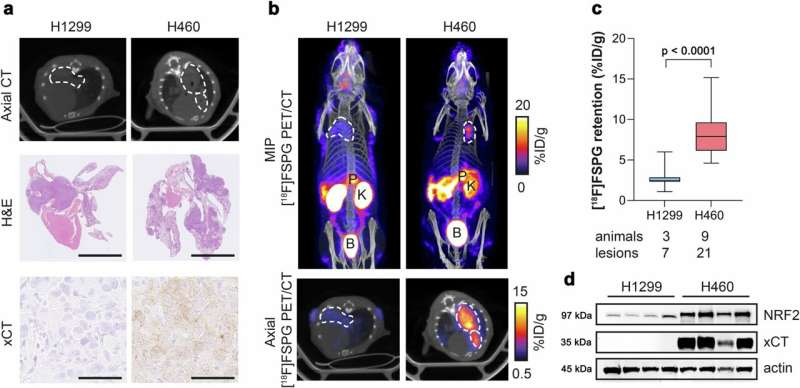The authors at King’s College London say that using the radiotracer—an injected compound used in PET scans—could help inform doctors that a patient’s aggressive cancer will not respond to chemotherapy before treatment is given. This would prevent patients receiving unnecessary treatment and provide them with alternative options that will give them the best chance of beating the disease.
The paper, “Imaging NRF2 activation in non-small cell lung cancer with positron emission tomography” published in Nature Communications, shows therapy-resistant non-small cell lung cancer tumors “lit up like a Christmas tree” on PET scans when the radiotracer was injected.
Tim Witney, a Professor of Molecular Imaging from King’s College London, and lead researcher of the study said, “Currently, there is no quick and early method that shows whether malignant tumors are resistant to treatment. Time is essential for patients with lung cancer, and many cannot afford to wait to see if chemotherapy is working. We wanted to increase the window of opportunity for treatment for these patients—giving them more choice and a better chance of survival.”

